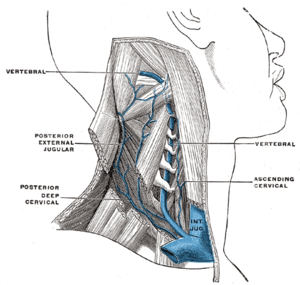
Image via Wikipedia
Quite the disjointed title, I know, but I promise, I will weave it all together into a tapestry of MS beneficence (how's that for a mouthful?)…
As I'm sure most of you know, Montel Williams suffers from MS. He's been very public about many of the treatments he's tried, from chiropractic (click here) to something called "The Wisconsin Project", which uses an electronic thingamajig that patients hold in their mouths to stimulate the nerves in the tongue and thus rewire the brain (?) (click here), and he's also been very vocal about his support for medical marijuana, claiming that it's just about the only thing that regularly helps him with his excruciating MS pain (click here).
As long-time readers of this site know, I'm down with the medical marijuana thing, though I haven't puffed in quite a while. My neuro prescribed Zanaflex for my muscle spasms, and although I generally like to stay away from pharmaceuticals (says he who has an entire pharmacy in his medicine cabinet), the stuff works, and I never really enjoyed getting stoned on MJ, even as a kid (although I did go through the requisite "say yes to drugs" phase in my misspent youth).
Naturally, in this the age of Facebook, Montel maintains a Facebook page (click here), on which he names a "Friend of the Week". This past week, his Facebook friend was Michelle Firestone Brown, who just so happens to be a buddy of mine. I'm not really sure what kind of accolades and benefits being named Montel's Friend of the Week bestows upon a person, but I'd imagine that Michelle would be perfectly within her rights to wear a sash reading "Friend of Montel" and a diamond tiara, if she so chose. Knowing Michelle, I'm not expecting a sash or a tiara, and that's why I like her.
ADDENDUM (11/28/10 9:15 PM): Guess I was wrong about Michelle not wearing a sash or tiara to celebrate her being named Montel's Facebook Friend of the Week. Well, at least about the tiara, as is evidenced by the photo below, which arrived tonight via e-mail…
I have a confession to make. I am a Facebook Luddite. I just don't understand the appeal. Since it now seems that you lose your membership card to the human race if you don't have a Facebook page, I do have a personal page, but I almost never look at it. I get e-mails from people requesting that I be their friends, and usually press the "confirm" button, but that's about the extent of my Facebook participation. Aside from rediscovering old friends, there just doesn't seem to be that much "there" there .
I have this vague feeling that I'm missing out on something, as so many people seem to be slavishly dedicated to Facebook, but whenever I check out one of my Facebook friends' pages, I usually find updates like "I just had scrambled eggs. They were runny.", or "Terrible case of the bloat this morning. Alka-Seltzer rules!" While I was writing this post, I looked at Montel's page, and his latest update was, "Up early getting ready for my morning appearance on QVC-tune in and watch me!" I hate to be a killjoy, but really, if I were making an appearance on QVC I would probably be doing it under an assumed name.
I know there are dozens of Facebook CCSVI pages, and people keep telling me that I need to put up a Wheelchair Kamikaze Facebook page, but I don't really understand why. If any of you would care to enlighten me, please do so in the comments section of this post. Growing up, I was led to believe that the technology of the future would simplify our lives. It seems to me it's only made things more complicated. Where is my jet pack? Where is my replicator? Where is my robot butler? For that matter, where is the cure to my freaking disease? Or to any freaking disease?
Anyway, I've veered way off course. This is supposed to be about Michelle and helping the CCSVI cause, so let's get back on track…
I became friends with Michelle through this site, after we exchanged several e-mails in the early days of the CCSVI revolution. She works here in New York City, so we met for lunch one day, hit it off, and have been good friends ever since. She's also a wheelchair person, and we've talked about collaborating on a Wheelchair Kamikaze video in which we'd sneak up behind unsuspecting pedestrians waiting at crosswalks for the light to change, and blast them with air horns. Given the below the waist view of my wheelchair mounted camera, we might get some shots of tourists in Times Square involuntarily filling their trousers. Would certainly make for quite the amusing video, although we might upset a few folks. But what the heck, what are they going to do, beat up a couple of gimps in wheelchairs? Just let them try, my wheelchair weighs over 300 pounds, and judging by the huge chunks I've taken out of the walls in my apartment, I'm sure I could demolish any attacker's shin bones. Anyway, I'm not sure we'll ever really go through with it, but I do find the concept extremely amusing. Kind of like a wheelchair version of "Jackass".
So, back to Michelle and CCSVI. Not only is Michelle a friend of Montel, and a friend of Marc, but she's also the Vice President of the CCSVI Alliance (click here), a nonprofit organization whose mission statement reads, "CCSVI Alliance is dedicated to educating patients with research-based information, providing tools for patients to advocate for themselves, and supporting medical professionals' exploration of Chronic Cerebrospinal Venous Insufficiency (CCSVI)."
I know most of the people involved with the Alliance, and I'm even a member of their Patient Advisory Board (but don't hold that against them, everyone's allowed one lapse in judgment). Although the organization is brand new, and is just getting going, they've already facilitated the production of several very informative video interviews of CCSVI luminaries, including one that will soon be posted featuring two CCSVI pioneers, Dr. Michael Dake and Dr. Manish Mehta, discussing the future of CCSVI treatment trials, which we all realize are of vital importance. This video is chock full of very important insights and observations, and I will definitely link to it here when it's ready for public consumption.
But wait, there's more! In the near future, the CCSVI Alliance plans on funding CCSVI research, holding conferences and forums bringing together doctors of different disciplines to help speed up the research and education process, and bring our hopes for CCSVI to fruition. Time is of the essence, as every day finds more people getting diagnosed with MS, and those who already have it getting mired deeper and deeper in the relentless progression of the disease.
I am an ardent supporter of the CCSVI Alliance, and believe the organization will be a major force in furthering CCSVI research, ultimately benefiting the entire MS population. As with any nonprofit, the efforts of the Alliance rely entirely on the charitable contributions of its supporters. So, if you believe in the promise of CCSVI, and are in a giving mood, donate whatever you can afford to the CCSVI Alliance, even if it's only a buck or two. It's easy, and you can even use PayPal to do it (click here). Every donation will be greatly appreciated, and will go to a cause that has the potential to change the entire MS landscape.
See that, I did manage to tie together all of the disparate elements in the title of this post. Yowza.
I'm still not understanding Facebook, though…
.








